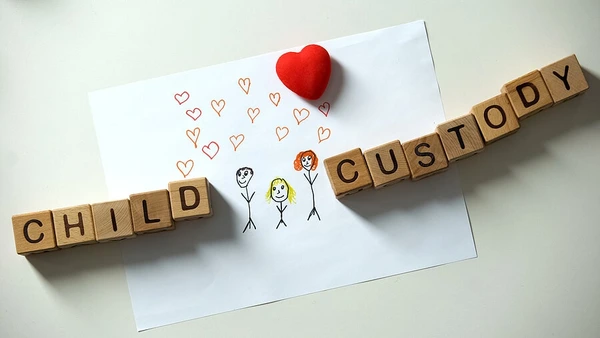Deciding to get divorced is never easy. But breaking the news to your children is even harder.
While you and your spouse may have come to terms with the decision, the news can come as a shock to your children.
However, this isn’t a conversation that you can avoid having for long. So, you need to try and do it in the best way possible.
Here are eight tips for how to tell your children about divorce.
#1 Plan where and when you’ll say it
Telling your children that you’re getting divorced isn’t something that should be randomly blurted out.
The time and place you tell your children are just as important as what you say.
You should plan to tell them at a time that gives them the opportunity to digest the news with you as a family. Starting the conversation at the weekend or school holiday is ideal as it means that your children won’t have to worry about going to school the next day.
Be mindful that the news you’re about to give your children will make them upset, both in the short term and the medium term. So, you should avoid telling them on or near holidays and other special days, like Christmas and birthdays.
Equally, it’s important that you tell your children in your family home - this is where they will feel most comfortable. This will help them to express their emotions and ask you any questions they may have.
#2 Tell your children together
You should try to break the news together with your ex-partner.
While this won’t be suitable for everyone (like if your ex was abusive), you should make the effort to present a united front as parents. This will help to reassure your children that you’re both committed to looking after them in the future.
Furthermore, telling all your children at the same time allows you to control the narrative about why you’re getting divorced, rather than the Chinese whispers you’re likely to experience if you only told one sibling to begin with. Remember that it’s important your children hear the news directly from you, not from their sibling.
However, while it’s important initially to talk to your children at the same time, you may need to speak to your children individually later, particularly if they’re different ages. For example, older children will need a deeper explanation than younger children.
#3 Don’t blame your partner for the break-up
You should avoid the urge to blame the divorce on your ex.
This can be difficult, particularly if your ex truly is responsible for the split, like if they had an affair. But in most breakups, the blame is more mixed. And, in any case, the “truth” behind the divorce isn’t the most important thing when you’re telling your children.
What’s much more important is reassuring your children that you love them and will continue to support them.
As far as possible, you should frame the divorce as a joint decision. That way, your children can’t blame either of you for the divorce.
#4 Explain why you’re getting divorced
You will need to give some explanation as to why you’re getting divorced.
While it’s not appropriate to share any specific details, your children need to understand why their lives will be changing.
Again, it’s important that you avoid blaming your ex for the divorce. Instead, aim for a general explanation that children of all ages can understand.
Some things you could say include:
-
“We tried hard to make our relationship work, but we couldn’t get over our differences”
-
“We want different things from life”
-
“We want to be friends, but we don’t love each other”
The important thing to remember is that the reasons for divorce are complicated adult problems. Children don’t have the emotional maturity to truly understand what you’re going through.
#5 Explain how their lives will change
More than anything else, your children will want to know how their daily life will be affected by the divorce.
First and foremost, they’ll want to know where they’ll live and with whom. But they’ll probably have many other practical questions, from who gets to keep the family pets to how they’ll spend Christmas.
It’s best to be as honest as you can when answering these questions.
Ideally, you should iron out the practical side of divorce before you start the conversation with the children. That way, you’ll be prepared for their questions. But if you don’t know the answer to something, it’s better to admit that you don’t know rather than making promises that you can’t keep.
#6 Reassure your children
Learning that their parents are getting divorced can be very unsettling for children, even if they were expecting it.
Children can worry that they somehow caused the divorce. They may even fear that you won’t love them anymore. It’s your job in this conversation to reassure them otherwise.
Explain that there’s nothing they did that could have caused your decision to get divorced. Equally, there was nothing they could have done to prevent it either.
Most importantly, reassure them that you and your ex love them and will always be there for them. While your family structure may be changing, you’ll always be their parents.
#7 Allow them to express themselves
Your children may not take the news in the way you might expect.
While it’s normal for children to cry, plead with you, or get angry, you may find that your children don’t have much of a response at all. This is perfectly normal.
Your children may not know how to express such intense emotions – shutting off is a way of protecting themselves.
Whatever your children’s response, let them know that how they feel is normal and that you’re there to support them.
#8 Encourage future conversations
Breaking the news of the divorce should be the first of many future conversations.
Each child will process the information differently. Some may have lots of questions while others may need time to process the information.
Let your children know that the door is always open – you’ll answer any questions they may have. However, be careful not to involve them in the financial issues that may come up during the divorce proceedings.





